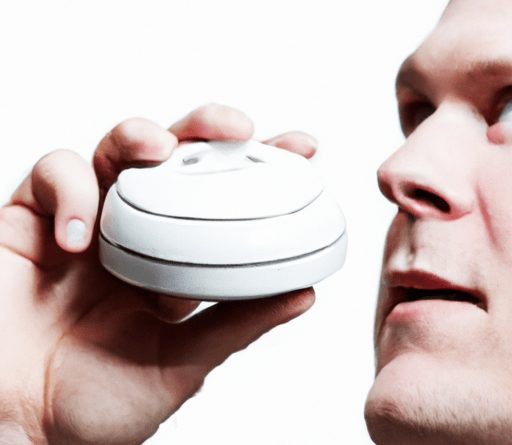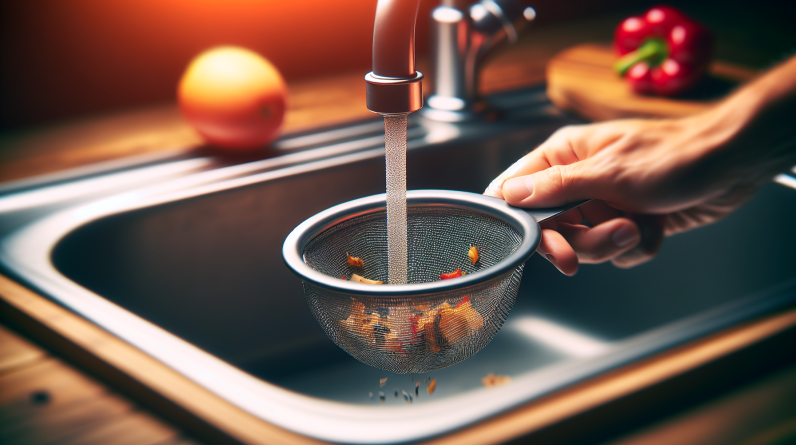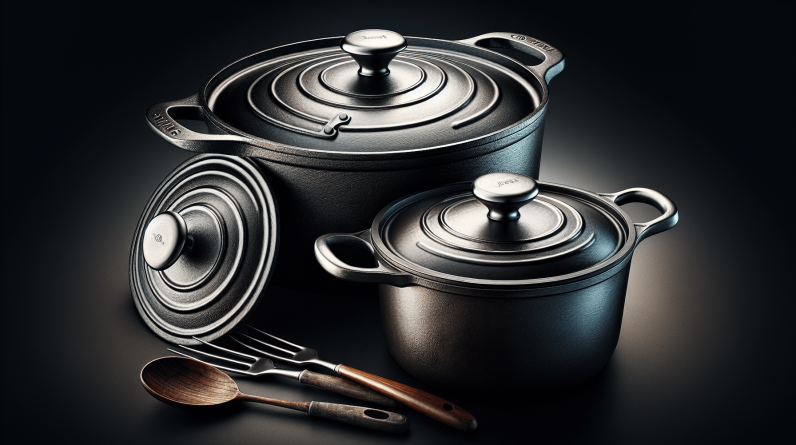Curious about the lifespan of your kitchen appliances? Look no further – “How Often Should I Replace My Kitchen Appliances?” has got you covered. With our comprehensive guide, we’ll explore the ideal replacement timeline for your fridge, oven, dishwasher, and more. Find out when it’s time to bid farewell to your trusty old appliances and embrace the new and improved. Say goodbye to guesswork and hello to a well-functioning kitchen that keeps up with the times. Explore the exciting world of appliance upgrades with us.

Signs that your kitchen appliances need replacing
As homeowners, we rely heavily on our kitchen appliances to help us prepare meals and make our lives easier. However, over time, these appliances can start to show signs of wear and tear, decreasing in efficiency and even experiencing frequent breakdowns. Knowing when it’s time to replace these essential devices can save us from the frustration and inconvenience of dealing with malfunctioning appliances. Here are some key signs that it might be time to consider replacing your kitchen appliances.
Visible wear and tear
One of the first signs that your kitchen appliances may need replacing is visible wear and tear. This could include scratches, dents, rust, or any other physical damage that affects the appearance and functionality of the appliance. While minor imperfections may not be cause for concern, extensive damage can be an indication that the appliance is nearing the end of its lifespan.
Decreased efficiency
Another sign that it may be time to replace your kitchen appliances is a decrease in efficiency. Appliances that once worked quickly and effectively may start to take longer or require multiple attempts to complete their tasks. For example, a refrigerator that struggles to maintain a consistent temperature or a dishwasher that no longer cleans dishes thoroughly could indicate that it’s time for an upgrade.
Frequent breakdowns
Perhaps the most frustrating sign that your kitchen appliances need replacing is experiencing frequent breakdowns. If you find yourself constantly calling for repairs or dealing with malfunctioning appliances, it may be more cost-effective to invest in new ones instead. Continuously repairing appliances can quickly become a financial burden, and the inconvenience of having your appliances out of commission can be a hassle.
Factors to consider when determining replacement frequency
While signs of wear and tear, decreased efficiency, and frequent breakdowns can be indicators that it’s time to replace your kitchen appliances, there are additional factors to consider when determining the ideal replacement frequency. These factors include the quality of the appliance, frequency of use, and maintenance and care.
Quality of the appliance
The quality of the appliance plays a significant role in determining its lifespan. High-quality appliances generally tend to last longer than their lower-quality counterparts. When purchasing a new appliance, it’s essential to consider reputable brands known for their durability and reliability. While they may come with a higher price tag initially, investing in a quality appliance can save you money in the long run by reducing the need for frequent replacements.
Frequency of use
Another factor to consider when determining replacement frequency is the frequency of use. Appliances that are used more frequently are likely to have a shorter lifespan compared to those used less often. For example, a family that cooks several meals a day will likely put more strain on their appliances than a single individual who eats out often. Understanding how often you use your appliances can help you estimate how long they may last before needing to be replaced.
Maintenance and care
Proper maintenance and care can significantly extend the life of your kitchen appliances. Regularly cleaning and maintaining your appliances according to the manufacturer’s guidelines can prevent unnecessary wear and tear and keep them functioning optimally. Neglecting maintenance tasks, such as cleaning coils or filters, can lead to decreased efficiency and an increased risk of breakdowns. By taking the time to care for your appliances properly, you can prolong their lifespan and reduce the need for premature replacement.

Refrigerators
Refrigerators are one of the most important appliances in any kitchen. They keep our food fresh and prevent spoilage. Understanding the expected lifespan of a refrigerator, signs that it may need replacing, and common issues with these appliances can help us make informed decisions.
Expected lifespan
The typical lifespan of a refrigerator is approximately 10-15 years. However, this can vary depending on various factors, such as the brand, model, usage patterns, and maintenance. High-quality refrigerators may last closer to 15 years, while lower-end models may only last around 10 years.
Signs of replacement
There are several signs that indicate it may be time to replace your refrigerator. One common sign is excessive noise. If your refrigerator is making loud and unusual sounds, it could be a sign of a failing motor or compressor. Another sign is inconsistent temperature regulation. If certain areas of your refrigerator are consistently warmer or colder than others, it may indicate a malfunctioning thermostat or cooling system. Additionally, if you notice excessive condensation or frosting inside your fridge, it could be a sign of a faulty seal or insulation.
Common issues
Like any other appliance, refrigerators can experience common issues. One common issue is a faulty defrost system, which can lead to excessive frost buildup and poor cooling performance. Another common issue is a clogged drain line, which can result in water leakage or ice accumulation. Problems with the door seals, such as tears or gaps, can also occur and compromise the efficiency of the refrigerator. Most of these issues can be repaired, but if they become frequent or costly to fix, it may be more cost-effective to replace the refrigerator altogether.
Dishwashers
Dishwashers are a true time-saver in the kitchen, relieving us from the task of washing dishes by hand. However, like any appliance, they are not immune to wear and tear. Understanding the expected lifespan, signs of replacement, and common issues with dishwashers can help us determine when it’s time for an upgrade.
Expected lifespan
On average, dishwashers have an expected lifespan of approximately 10-15 years. This can vary depending on factors such as usage patterns, quality, and maintenance. High-quality dishwashers, with proper care and maintenance, can last closer to 15 years, while lower-end models may only last around 10 years.
Signs of replacement
There are several signs that indicate it may be time to replace your dishwasher. One obvious sign is when it no longer cleans dishes properly. If your dishwasher consistently leaves food residue or does not remove tough stains, it may be a sign of a malfunctioning spray arm, clogged filters, or a worn-out pump. Another sign is frequent leaks or water pooling around the dishwasher. This can indicate issues with the door seal, hoses, or drain pump. Additionally, if your dishwasher starts making loud and unusual noises, it could be a sign of a failing motor or worn-out bearings.
Common issues
Common issues with dishwashers can include problems with drainage, poor cleaning performance, and issues with the control panel or buttons. Clogged drain lines or filters can lead to drainage problems and cause water to pool at the bottom of the dishwasher. Poor cleaning performance can be attributed to malfunctioning spray arms, clogged filters, or a faulty heating element. Issues with the control panel or buttons can affect the overall functionality and usability of the dishwasher. While some of these issues can be repaired, if they occur frequently or become costly to fix, it might be more cost-effective to consider replacing the dishwasher.

Ovens and stoves
Ovens and stoves are essential for cooking and baking, so it’s crucial to have reliable appliances in your kitchen. Understanding the expected lifespan, signs of replacement, and common issues with ovens and stoves can help you determine when it’s time for an upgrade.
Expected lifespan
The lifespan of ovens and stoves can vary depending on the type and quality of the appliance. Electric ovens typically last around 13-15 years, while gas ovens may last slightly longer, averaging around 15-17 years. Gas stoves can last approximately 15-20 years, while electric stoves typically have a lifespan of 13-15 years. However, proper maintenance and care can significantly extend the lifespan of these appliances.
Signs of replacement
Several signs indicate it may be time to replace your oven or stove. One common sign is inconsistent heating. If your oven or stove struggles to reach and maintain the desired temperature or heats unevenly, it could be a sign of a faulty heating element or temperature sensor. Another sign is a malfunctioning control panel or buttons. If buttons become unresponsive or if the control panel displays error codes constantly, it may indicate a deeper issue with the appliance. Additionally, if your oven or stove begins to emit unusual odors or smoke, it could be a sign of wiring or electrical problems that require immediate attention.
Common issues
Common issues with ovens and stoves include problems with the heating element, faulty temperature sensors, issues with the control panel or buttons, and malfunctioning ignition systems in gas stoves. These issues can affect the overall functionality and safety of the appliance. While some problems can be repaired, if they occur frequently or pose a safety risk, it may be more practical and cost-effective to replace the oven or stove.
Microwaves
Microwaves have become an essential part of modern kitchens, offering convenience and quick cooking options. However, even these reliable appliances can reach the end of their lifespan and require replacement. Understanding the expected lifespan, signs of replacement, and common issues with microwaves can help you determine when it’s time for an upgrade.
Expected lifespan
Microwaves generally have a shorter lifespan compared to other kitchen appliances, averaging around 8-10 years. However, proper maintenance and care can help extend their lifespan. Like other appliances, high-quality microwaves may last longer than lower-end models.
Signs of replacement
Signs that your microwave may need replacing include inconsistent heating, unusual noises, or a malfunctioning control panel. If your microwave struggles to heat food evenly or takes longer than usual to warm up, it could indicate a problem with the magnetron or other internal components. Unusual noises, such as loud buzzing or sparking, can be signs of a failing motor or electrical issues. Additionally, if the control panel becomes unresponsive or displays error codes frequently, it may be a sign of a faulty control board or keypad.
Common issues
Common issues with microwaves can include problems with the magnetron, door switches, or control panel. The magnetron is responsible for generating the microwave’s heat, and if it fails, the appliance may not function properly. Door switches that are worn out or misaligned can prevent the microwave from starting or stop it mid-cycle. Issues with the control panel or keypad can affect the overall usability and functionality of the appliance. While some of these problems can be repaired, if they occur frequently or pose a safety risk, it may be more practical to replace the microwave.

Coffee makers
Coffee makers are a staple in many households, helping us start our day with a fresh cup of joe. However, like any appliance, they can wear out over time. Understanding the expected lifespan, signs of replacement, and common issues with coffee makers can help you determine when it’s time for a new one.
Expected lifespan
The lifespan of a coffee maker can vary depending on the type and quality of the appliance. Traditional drip coffee makers typically last around 5-7 years, while more high-end models can last up to 10 years. Single-serve coffee makers, like Keurig machines, may have a slightly shorter lifespan, averaging around 3-5 years. However, proper maintenance and descaling can extend the lifespan of your coffee maker.
Signs of replacement
Several signs indicate it may be time to replace your coffee maker. One common sign is frequent malfunctions or errors. If your coffee maker consistently displays error messages, fails to brew coffee correctly, or shuts off unexpectedly, it could be a sign of internal issues. Another sign is a decrease in brewing quality. If your coffee tastes off, the brewing process takes longer than usual, or the machine no longer produces hot coffee, it may be time for a replacement. Additionally, excessive leaking or water pooling around the coffee maker can indicate a faulty internal seal or pump.
Common issues
Common issues with coffee makers include problems with the heating element, clogged water lines or filters, malfunctioning control panels, or worn-out components. The heating element is responsible for heating the water to the appropriate temperature for brewing, and if it fails, your coffee maker may not function properly. Clogged water lines or filters can lead to slow brewing, inconsistent water flow, or off-tasting coffee. Issues with the control panel or buttons can affect the overall usability and settings of the coffee maker. While some of these issues can be repaired, if they occur frequently or disrupt your daily coffee routine, it may be time to invest in a new coffee maker.
Blenders
Blenders are versatile appliances that allow us to create delicious smoothies, sauces, and other blended recipes. However, over time, blenders can start to show signs of wear and tear, impacting their performance. Understanding the expected lifespan, signs of replacement, and common issues with blenders can help you determine when it’s time for an upgrade.
Expected lifespan
The expected lifespan of a blender can vary depending on factors such as the brand, usage patterns, and build quality. On average, blenders can last around 5-10 years. Higher-quality blenders, with proper maintenance, can last closer to 10 years, while lower-end models may have a shorter lifespan.
Signs of replacement
Signs that your blender may need replacing include decreased blending performance, unusual noises, or a malfunctioning power switch. If your blender struggles to blend ingredients smoothly, leaves chunks or pieces behind, or takes longer than usual to complete blending tasks, it may be a sign of worn-out blades or a weak motor. Unusual noises, such as grinding or rattling sounds, can indicate a problem with the motor or bearings. Additionally, if the power switch becomes unresponsive or the blender turns on and off unexpectedly, it could be a sign of a faulty electrical connection.
Common issues
Common issues with blenders can include problems with the motor, blades, or seals. Over time, the motor may wear out, leading to decreased performance and blending power. Dull or damaged blades can affect the blender’s ability to blend ingredients smoothly. Faulty seals can result in leaks or difficulties securing the blender jar. While some of these issues can be repaired, if they occur frequently or significantly impact the blender’s functionality, it may be time to consider replacing your blender.

Toasters and toaster ovens
Toasters and toaster ovens are convenient appliances that help us quickly prepare breakfast or small meals. However, like any other kitchen appliance, they can age and require replacement. Understanding the expected lifespan, signs of replacement, and common issues with toasters and toaster ovens can help you determine when it’s time for a new one.
Expected lifespan
The expected lifespan of toasters and toaster ovens can vary depending on factors such as usage patterns, build quality, and maintenance. On average, toasters can last around 5-7 years, while toaster ovens can last closer to 7-10 years. However, proper care and maintenance can extend their lifespan.
Signs of replacement
Signs that your toaster or toaster oven may need replacing include uneven toasting, inconsistent heating, or a malfunctioning timer. If your toaster consistently toasts bread unevenly, leaving some parts undercooked or burnt, it could be a sign of faulty heating elements or uneven heat distribution. Inconsistent heating, where the toaster or toaster oven struggles to reach and maintain the desired temperature, can indicate a malfunctioning thermostat. Additionally, if the built-in timer no longer works or the appliance shuts off unexpectedly, it may be a sign of a faulty control panel or wiring.
Common issues
Common issues with toasters and toaster ovens include problems with the heating elements, faulty thermostats, malfunctioning timers, or issues with the control panel or buttons. Over time, heating elements can wear out or become damaged, leading to inconsistent toasting. Faulty thermostats can result in uneven heating or difficulties maintaining the desired temperature. Malfunctioning timers can prevent the toaster or toaster oven from shutting off or lead to premature shutdowns. Problems with the control panel or buttons can affect the overall functionality and usability of the appliance. While some of these issues can be repaired, if they occur frequently or significantly impact the appliance’s performance, it may be more practical to consider replacing your toaster or toaster oven.
Conclusion
Knowing when to replace your kitchen appliances is essential for maintaining a well-functioning and efficient kitchen. Signs such as visible wear and tear, decreased efficiency, and frequent breakdowns can indicate that it’s time for an upgrade. Factors such as the quality of the appliance, frequency of use, and proper maintenance and care can influence the ideal replacement frequency.
Refrigerators, dishwashers, ovens and stoves, microwaves, coffee makers, blenders, and toasters and toaster ovens all have different expected lifespans and common issues to consider. Understanding these factors can help you make informed decisions about when to replace these essential kitchen appliances.
By staying attentive to the signs of wear and tear, being mindful of the frequency of their usage, and properly maintaining and caring for our kitchen appliances, we can prolong their lifespan and avoid the inconvenience and cost of frequent breakdowns. Investing in quality appliances and replacing them at the right time will ensure a well-functioning and efficient kitchen for years to come.










